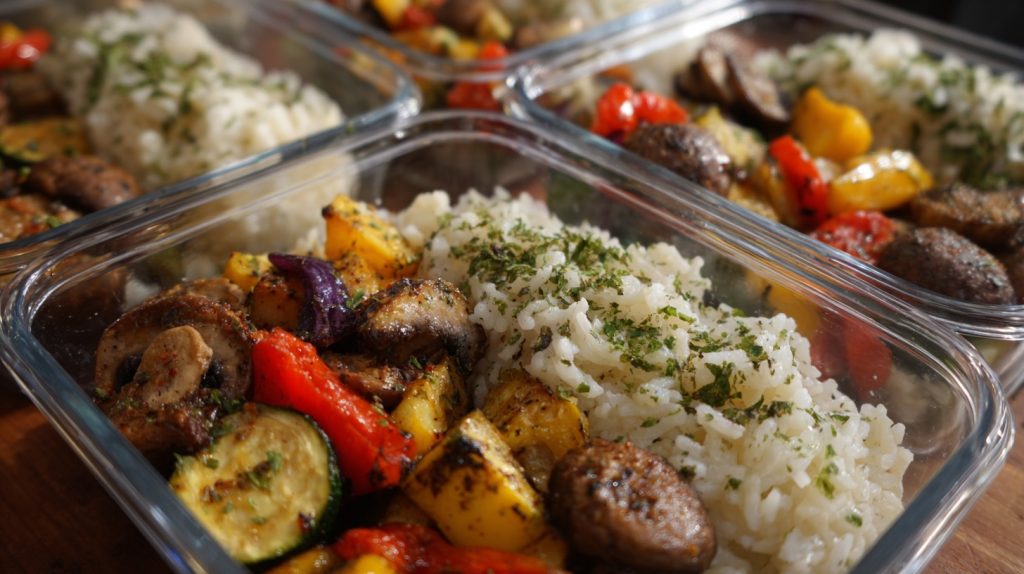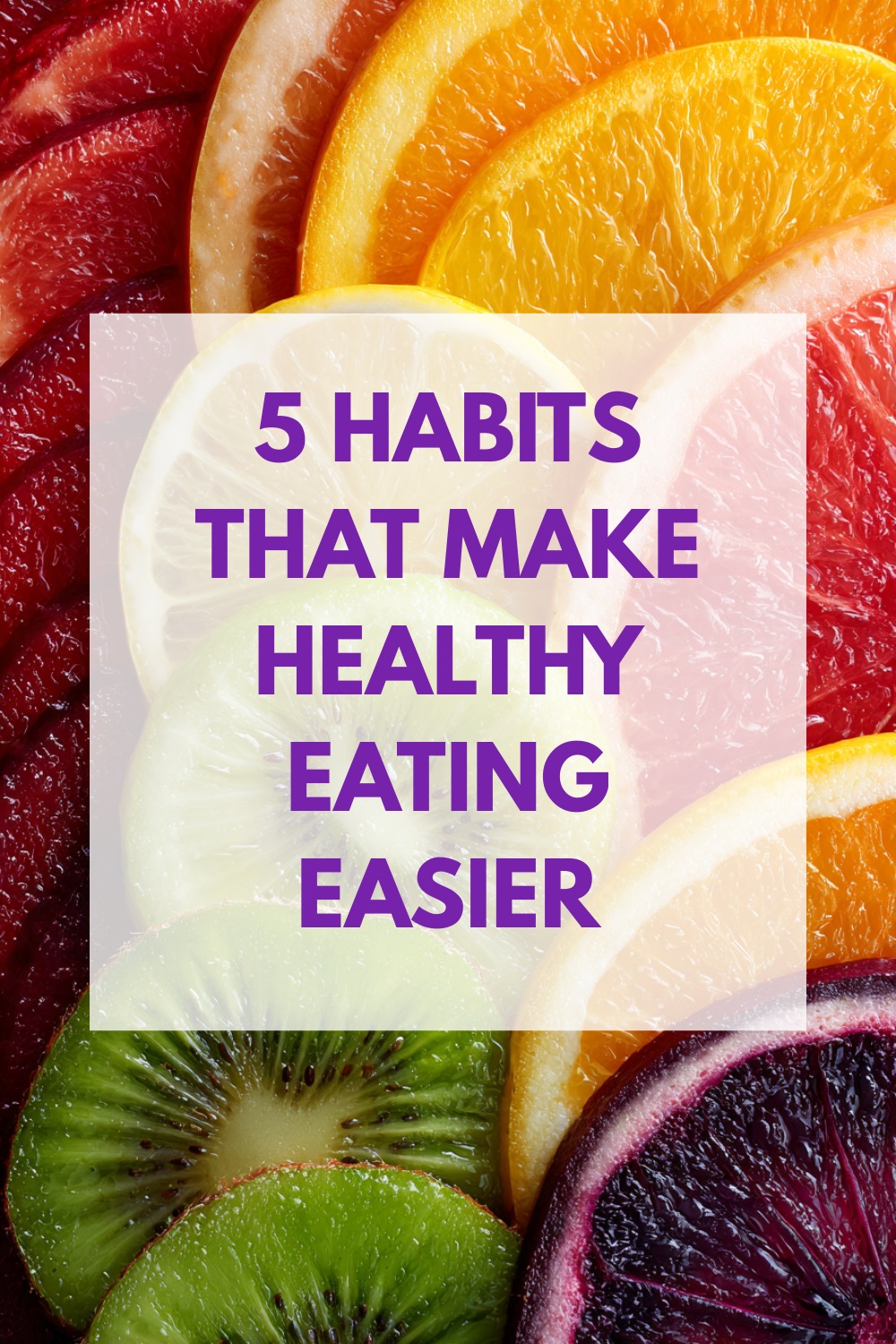Eating healthy sounds great when you’re planning ahead.
But when life gets busy, your good intentions can fall apart fast.
You skip meals, grab whatever’s easiest, and tell yourself you’ll “get back on track” tomorrow.
The truth is, motivation and planning are great when they work. But habits are what hold things together when life doesn’t go to plan.
Here are five practical habits that can make healthy eating easier, even when your schedule is chaotic.
1. Keep Healthy Snacks in Your Car, Bag, or Desk
When you’re busy, hunger often shows up suddenly.
You’re driving between errands, stuck in traffic, or working late. You don’t have time to cook, and fast food starts looking like the only option.
That’s where this habit helps.
Keep simple, non-perishable snacks with you:
- A handful of nuts or trail mix
- Protein bars
- Beef jerky
- Roasted chickpeas
- Fruit that travels well (like apples or mandarins)
It’s not about replacing meals with snacks. It’s about having something to keep you steady until you can eat properly.
Having those options on hand reduces the chances of hitting the drive-thru or grabbing something sugary just to get through the moment.
2. Always Keep a Frozen Backup Meal in the Freezer
Some days you get home and just can’t deal with cooking.
You’re tired. You didn’t plan anything. You’re hungry now.
That’s the moment when most people default to takeout or whatever random thing they can microwave in five minutes.
A frozen backup meal gives you an easy way out without derailing your week.
This could be:
- A store-bought meal you like and trust
- A batch of leftovers you froze last week
- A frozen stir-fry kit and a bag of frozen rice
- Soup, chili, or stew that just needs reheating
The key is having at least one solid, no-effort option waiting for you. You don’t need to use it often, but when you do, it makes all the difference.
3. Practice a “Pause” Before Snacking
Most people don’t overeat because they’re hungry.
They snack because they’re stressed, tired, bored, or just in a loop of habit.
That’s why this habit is so simple and powerful: before you grab a snack, pause for five seconds.
Ask yourself:
- Am I actually hungry?
- What am I hoping this food will do for me?
- Is there something else I might need right now?
You don’t need to say no to the snack. Just check in first.
This little pause helps bring awareness into the moment, instead of acting on autopilot.
And even if you go ahead and eat the snack, you’ll do it more consciously. That alone makes a difference.
4. Prep Once for the Week – Even Just a Little
You don’t need to be someone who meal preps on Sundays with 10 containers lined up on the counter.
But a small bit of prep can take a lot of pressure off your week.
Try things like:
- Washing and chopping a few vegetables
- Cooking a batch of rice or roasted potatoes
- Boiling some eggs
- Marinating some chicken
- Prepping a snack box or two for work
Set a timer for 30 minutes if that helps. Do what you can in that time, then stop.
This habit gives you building blocks that make it easier to throw meals together fast, even when you’re tired or distracted.

5. Don’t Wait Until You’re Starving to Eat
When you push through hunger all day, it usually backfires at night.
You end up ravenous, tired, and way more likely to overeat or grab something sugary and fast.
This isn’t about snacking all the time or being rigid. It’s just about not ignoring hunger until it’s overwhelming.
Try eating something every 3 to 5 hours, or at least paying attention to when your energy dips.
Sometimes, having a snack a little earlier in the day means avoiding a binge later.
Eating consistently helps keep your blood sugar stable, your energy steady, and your decision-making stronger.
You Don’t Need a Perfect Plan – Just a Few Reliable Habits
These habits aren’t meant to give you more rules. They’re meant to take pressure off.
You don’t have to track anything. You don’t have to prep every meal. You don’t need to be organized every single day.
You just need a few fallback systems that help you keep moving forward, even when things are busy.
That’s what builds consistency. Not motivation. Not strict rules. Just small, repeatable things that support you in the background.
Final Thoughts
Life gets messy. Schedules change. Some weeks feel like survival mode.
That’s normal.
But if you have a few of these habits in place, you’ll bounce back quicker. You’ll eat more consistently. And you’ll trust yourself more along the way.
Start with one habit. Practice it until it sticks. Then build from there.
It doesn’t need to be complicated to work. It just needs to work for you.

